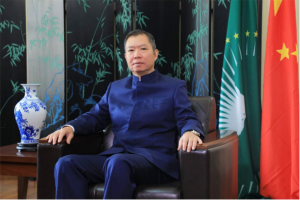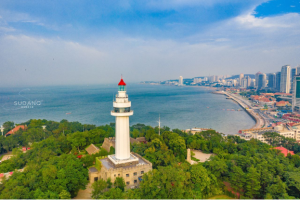BY STAFF REPORTER
ADDIS ABABA – Africa must lead the charge in mobilizing domestic resources to recover from multiple economic and social crises which have deepened poverty and widened inequality on the continent, Acting Executive Secretary of the Economic Commission for Africa, Antonio Pedro, has urged, warning that Africa risks missing the Sustainable Development Goals.
“Africa currently leads in global poverty,” Mr. Pedro told participants at the 41st meeting of the Committee of Experts that kicked off today, ahead of next week’s Conference of African Ministers of Finance, Planning and Economic Development Addis Ababa, Ethiopia.
Mr. Pedro cautioned that without bold financial and climate action, Africa will be locked into a poverty trap. With more than half of the world’s poor – 54.8% in 2022 being in Africa, the continent had overtaken South Asia with 37.6%, while the COVID-19 outbreak had pushed 62 million people into poverty in just one year, with an additional 18 million estimated to have joined their ranks by the end of 2022.
As many as 149 million non-poor remain at high risk of falling into poverty, Mr. Pedro said, further elaborating that 695 million people in Africa were either poor or face the risk of falling into poverty.
“Women and girls remain particularly vulnerable, and we are facing a potential reversal of the hard-won gains made on gender equity,” said Mr. Pedro, adding that, “Africa cannot just stay the course and hope that it gets better. It must lead the charge.”
The challenges are not insurmountable if Africa can implement systemic change and build resilient and sustainable systems, shifting away from a primary focus on efficiency that has dominated past decades.
Mr. Pedro said investments in sustainable building up capital in critical assets – including human, infrastructure, and natural resources – were needed to provide an environment that can facilitate achieving the ambitions of the 2030 Agenda and Agenda 2063. Therefore, governments must design strategies that simultaneously integrate economic, social and environmental objectives, he noted.
“First, we need to finance our development, “Mr. Pedro urged, emphasizing that getting the macroeconomic fundamentals right can unlock the potential of home-grown solutions.
Nonetheless, he said, Africa still needs a fairer and more just global financial architecture that responds to its needs, bemoaning that many countries currently cannot access international financial markets because of rising interest rates and unworkable existing debt relief mechanisms.
He noted that Africa must aggressively pursue sustainable industrialization and economic diversification to transform its natural resources into tangible benefits for its people. The battery and electric value chain development was a case in point.
“Put simply, our wealth in natural resources must work for the majority, not the few. To get to this point, we must be intentional in our approach, said Mr. Pedro, citing that the African Continental Free Trade Area (AfCFTA) can increase intra-Africa trade.
“We must take center stage on climate action. While we cannot overlook the fact that we are disproportionately suffering on impact and financing alike, we have significant opportunities to rebalance the scales on climate finance,” he said.
Africa rainforests and the development of its carbon markets, for instance, could unleash an estimated $82 billion a year in value at $120 per ton of CO2 sequestered and create 167 million additional jobs.
In opening remarks at the conference, Nemera Gebeyehu Mamo, State Minister for Planning and Development of the Government of the Federal Democratic Republic of Ethiopia, emphasized that Africa must accelerate changes needed for its economic recovery.
“Poverty is Africa’s most pressing challenge,” Mr. Mamo told participants, remarking that Africa should advocate for financial changes to aid recovery. “Climate action is impossible without finance,” stressed Mr. Mamo, noting that leveraging climate change financing can help tackle poverty in Africa.
Africa’s growing poverty is linked to the worsening economic and financial conditions it has experienced, Mahamadou Bamba Diop, Director General of Planning and Economic Policies of the Republic of Senegal and Outgoing Chair of the Bureau of the Committee of Experts, said in an overview of the situation in Africa.
Mr. Diop noted that Africa’s economic growth had slowed over the past year due to the combined effects of COVID pandemic, the Ukraine war, global economic slowdown and climate change.
“We need to build a resilient Africa,” Mr. Diop urged, highlighting the need to reform the current financial architecture, develop effective data and statistical systems and tackle the impact of climate change.
To provide relief and humanitarian assistance to refugees and host communities it is estimated that USD 101 million is needed for the next nine months. WHO will need USD 5.86 million to provide health assistance and ensure the continuity of basic health services for affected communities in the Dollo Zone of Ethiopia’s Somali region.
Source: UNECA
The Ethiopian Herald March 18/2023




